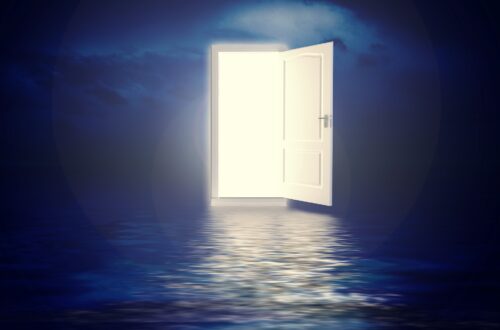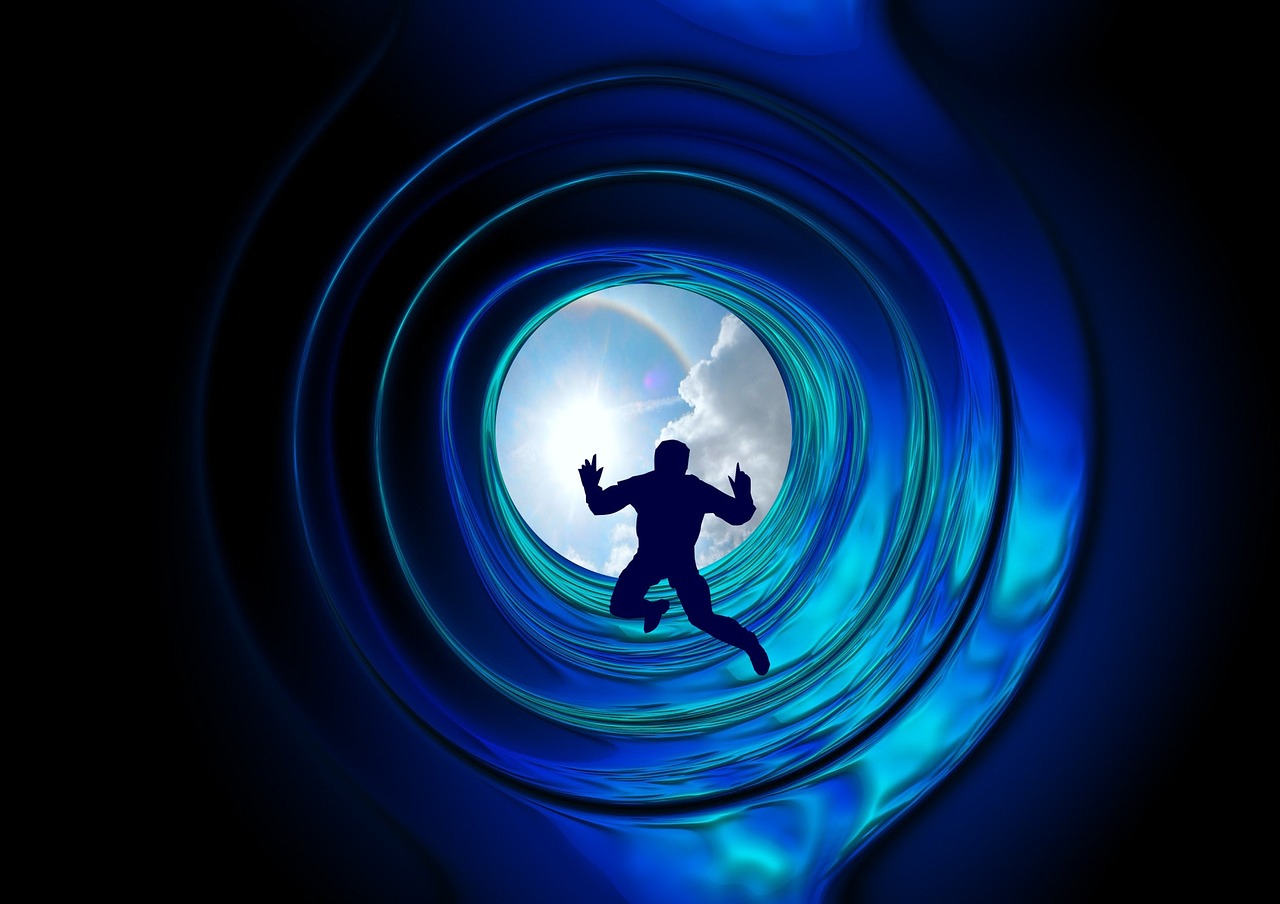
Distracted from Distraction by Distraction
The title is taken from the first of T. S. Eliot’s” Four Quartets,” Burnt Norton. It describes the plight of modern humans. We spend all of our time running away from ourselves by indulging in endless distraction.
Distractions, Distractions, Distractions
Our current era appears to be the worst of all. We have so many distractions, so many diversions, so many things to engage ourselves that we never have time for ourselves.
The internet revolution, social media and cell phones have taken distraction to a new level. It’s hard to imagine what people even did before having cell phones to constantly distract themselves. We are no longer separated from our distractions. They are everywhere and constant.
An Example
When I was teaching in the community colleges before class began, I would walk in and just about every student was buried in their cell phones. Even during class, they couldn’t stay away from them. I had a no cell phone use policy once class started, but I could see students hiding them under their desks, in their laps, scrolling, texting and obsessing.
I once called out a young woman who was openly using it during class. She looked at me in amazement and said she didn’t even know she was still using it. The look of shock on her face led me to believe she may very well have been telling me the truth.
Dying Before We Die
Why am I bringing all this up? There is a connection between these distractions and our fear of death. In my last number of articles, I have been exploring the subject of death. Using The Tibetan Book of the Dead and another book entitled, Mind Beyond Death by Dzogchen Ponlop as my sources, I have been educating myself and maybe a few others on how to prepare ourselves for death, and what happens when we actually do die.
I know a lot people think we can’t possibly know this until we have actually been there, but from what I’m reading, that’s not true. Apparently a number of people do, as Plato put it, “Die before they die.” In other words, they went through the dying process while alive.
Or as the Buddhists put it, “When you die before you die, then when you do die, you don’t die.”
So this intrigued me and I had to see if there was anything to it. After studying and taking a few courses, I have come to believe they may very well be on to something.
They give instructions on how to die before you die, and if you can’t quite accomplish that feat, then how to handle death, so the dying experience can, believe it or not, be a pleasant and enlightening experience.
Distracting Ourselves and Fearing Death
Who wouldn’t want that? Especially in our materialistic minded culture where many people think death is the end of everything, the total annihilation of ourselves. That’s our real fear: ultimate and eternal nothingness. It’s the reason we spend so much time distracting ourselves, and why not, if the end result–absolute nothingness–is all we have to look forward to.
The idea most likely comes from science which discounts anything that isn’t quantifiable or measurable. If we can’t see, taste, smell, hear or touch it, it doesn’t exist. If that is the modern worldview, why on earth would any intelligent person believe in some fantasy that something exists after we die. Where’s the proof? Where’s the physical evidence?
Go Beyond Religion To Face Ourselves
All these beliefs in an after-life appear to be based on religion, which can offer no evidence to support it. They just tell us to have faith, and if we have been good little boys and girls we might attain it. And if we haven’t, well then, we likely will be facing an eternity burning in hell.
I understand the unwillingness to buy into that perspective. I don’t believe in that myself, but that doesn’t mean that some aspect of ourselves doesn’t continue after we die. The books I have been reading and courses I have taken suggest, in a much more “rational” manner, that it doesn’t end at death.
But it is something we have to explore, and to do that, we can’t, as T.S. Eliot said, “Be Distracted from Distraction by Distraction.” In other words, we have to turn off the computer, put down the cell phone, and get off social media, in order to stop running away from ourselves. How can we know if any part of us may survive death if we don’t even know who we are? Being constantly distracted keeps us from exploring the deeper eternal aspects of ourselves.
I’m not saying we have to completely stop using all those devises, but we must greatly temper our use, especially when we use them to just kill time in order to avoid looking more deeply at ourselves, thus hindering our path to liberation.
You Can Run but You Can’t Hide
As I have said in my previous articles, what most intrigued me about The Tibetan Book of the Dead, was the part that says that when we die all that stuff in our unconscious that we have been distracting ourselves from, bursts, unfiltered, and at ten times the intensity, into our consciousness.
I know a lot of us think when we die, everything just goes blank. We disappear and that’s that. There is no reckoning at the end, just nothingness.
It Doesn’t End at Death
But the Tibetans beg to differ. They believe our awareness continues on after we die and our minds continue to manufacture content in the form of images, thoughts and feelings. Only now without a body to ground us, those images, thoughts and feelings take us to wherever our imagination dictates.
They warn that if we can’t control our minds while alive, what chance will we have when we die when it comes at ten times the intensity If you read The Tibetan Book of Dead, you can get a taste of what the after-life experience would be like, and if we haven’t prepared for it, it ain’t pretty. Of course, it is all an individual experience in that our minds create what we have sown. We will be the creators of our own after-life reality movie.
I know some people who have read these horror stories in The Tibetan Book of the Dead, dismiss them as sounding too much like the hellfire and brimstone threatened by some organized religions if we don’t heed their teachings. I admit they can sound like that. But, again, those images in The Tibetan Book of the Dead are not just generalized images used to scare people, but instead are very much tied to our individual psychologies, and are not unlike the dreams, and yes, the nightmares, we experience in our sleep.
The more I read about them, the more I’m convinced they are on to something here.
The instructions these books and courses give to prepare us for death are not commandments to follow, but suggestions to think about. As I have gone through some of their practices, I have experienced an increasing calmness in myself over the prospect of death. I am not completely there yet, but I think there is tremendous benefit in following these guidelines. They mostly revolve around dealing with our stuff and not distracting ourselves from it.
The more we stay with it, the more it will lessen and eventually dissolve. That means we won’t have to deal with it after we die.
Preparing for Death, Improves Our Lives
The other surprising benefit is how it improves our lives. Going deeper into ourselves and realizing more clearly who we are, makes life less stressful and more exciting. Knowing better who we are means knowing what makes us happy. It means giving ourselves a more meaningful and fulfilled life. We begin to see and experience that life and death are not opposites but are intimately related. To create a better death means to create a better life.
Our outer focused, materialistically minded culture does not support this. That’s the reason so many people spend their lives in constant distraction. I would suggest this constant distraction leads to many of our own and the world’s problems. Any acts that comes from such a confused state of mind, can’t be good.
So, if we want to live more fulfilled lives and have a better death, maybe even a joyful death, we have to stop being distracting from distraction by distraction, and instead have a real sit down with ourselves to discover who or what is really there beyond the veil of distraction.
To learn more about the magic of the universe: Click this link: The Magical Universe.




